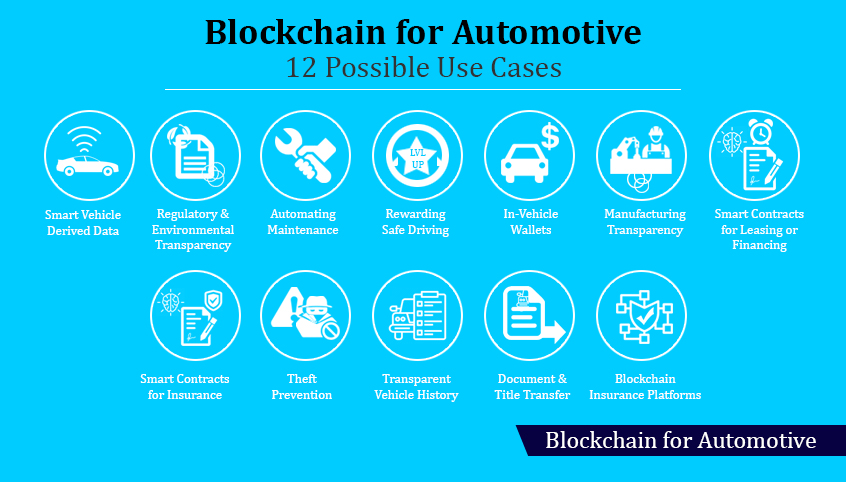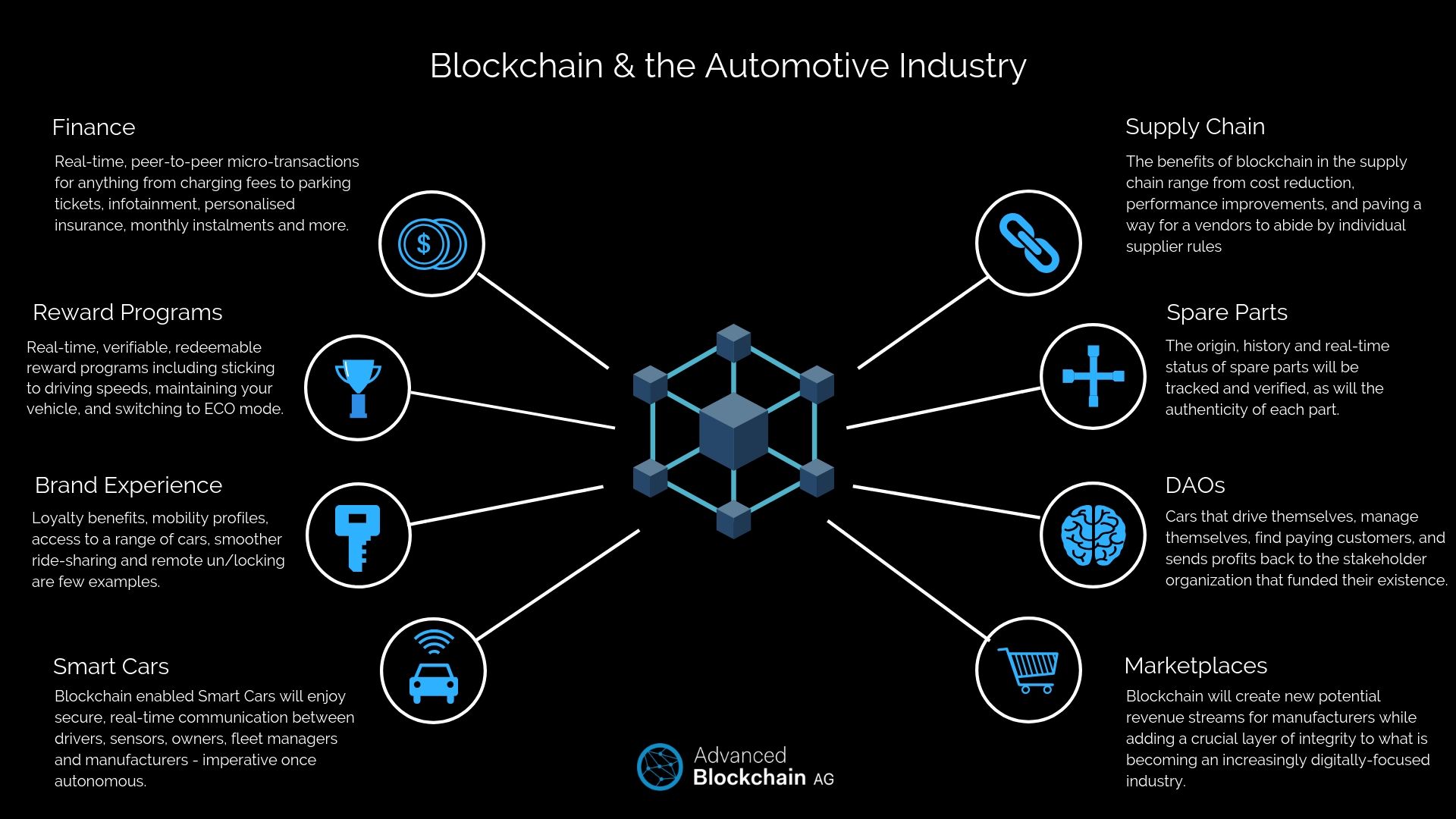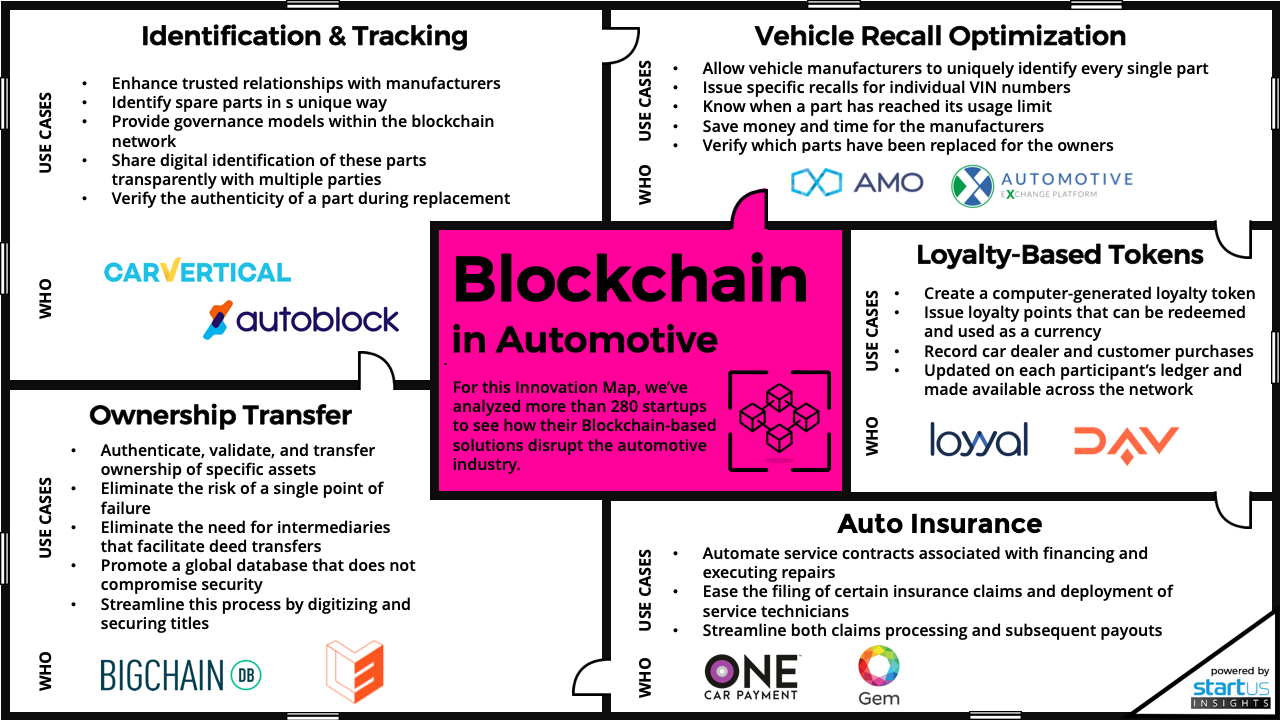SERVICES BY US
Automobile & Blockchain
Blockchain technology can be useful in Automobile:
- Supply chain management: Blockchain can provide a transparent and secure way to track automobile parts as they move through the supply chain, from the initial manufacturing stage to the final assembly line. Each time a part is produced, shipped, received, and installed, it can be recorded on the blockchain, creating a tamper-proof and immutable record of the part’s history. This can help in improving supply chain efficiency, reducing fraud and counterfeiting, and enhancing quality control.

Vehicle ownership and history: Blockchain can provide a secure and immutable record of a vehicle’s ownership and history. This can help in reducing fraud and theft by providing a tamper-proof record of ownership transfers. It can also be useful for buyers who want to verify a vehicle’s history before making a purchase. For example, if a vehicle has been involved in an accident or has undergone major repairs, this information can be recorded on the blockchain and accessed by potential buyers.
Autonomous vehicles: Blockchain can be used to create a decentralized network for communication between autonomous vehicles. As these vehicles become more common, there will be a need for them to communicate with each other to avoid collisions and optimize traffic flow. Blockchain can provide a secure and decentralized way for these vehicles to share data such as their location, speed, and direction of travel. This can help in reducing accidents and improving traffic flow.
Payments and transactions: Blockchain can be used to create a secure and decentralized payment system for automobile-related transactions. For example, drivers could use cryptocurrency or digital tokens to pay for tolls, parking fees, or insurance premiums. This can help in reducing fraud and increasing the speed and efficiency of transactions.

In addition to these applications, blockchain can also be useful in other areas of the automobile industry, such as warranty management, vehicle recalls, and maintenance records. Overall, blockchain has the potential to transform the automobile industry by increasing efficiency, transparency, and security in various aspects of the industry.

Few blockchain case studies for Automobile:
BMW and VeChain: BMW has partnered with VeChain, a blockchain technology provider, to develop a platform for tracking the lifecycle of its cars. The platform uses blockchain technology to create a tamper-proof and transparent record of the car’s history, from the initial production to the end of its lifecycle. This includes tracking the use of raw materials, parts, and components, as well as maintenance and repair records. The platform can also be used to ensure that the car meets regulatory and environmental standards.
Renault and Microsoft: Renault has partnered with Microsoft to develop a blockchain-based platform for managing its supply chain. The platform uses blockchain technology to create a secure and transparent record of each step in the supply chain, from the initial production to the final delivery. This includes tracking the use of raw materials, parts, and components, as well as monitoring the quality and safety of the products. The platform can also be used to ensure that the products meet regulatory and environmental standards.
Daimler and Riddle & Code: Daimler, the parent company of Mercedes-Benz, has partnered with Riddle & Code, a blockchain technology provider, to develop a platform for verifying the authenticity of its parts. The platform uses blockchain technology to create a secure and transparent record of each part, from the initial production to the final installation. This includes tracking the use of raw materials, parts, and components, as well as monitoring the quality and safety of the parts. The platform can also be used to prevent counterfeiting and ensure that the parts meet regulatory and environmental standards.
Toyota and Accenture: Toyota has partnered with Accenture, a technology consulting firm, to develop a blockchain-based platform for managing the data generated by its autonomous vehicles. The platform uses blockchain technology to create a secure and decentralized network for sharing data between the vehicles. This includes real-time data on the vehicle’s location, speed, and direction of travel, as well as data on road conditions and other factors. The platform can also be used to improve the safety and efficiency of autonomous vehicles.
These are just a few examples of how blockchain technology can be applied in the automobile industry. As the technology continues to evolve, we can expect to see more innovative applications of blockchain in this industry and others.
Services categories
About us

Our goal is to help our clients achieve their online goals by providing them with customized, effective, and results-driven solutions that drive growth, increase visibility, and strengthen their online presence.
Contact info
Address office
USA, INDIA, VIETNAM
Phone